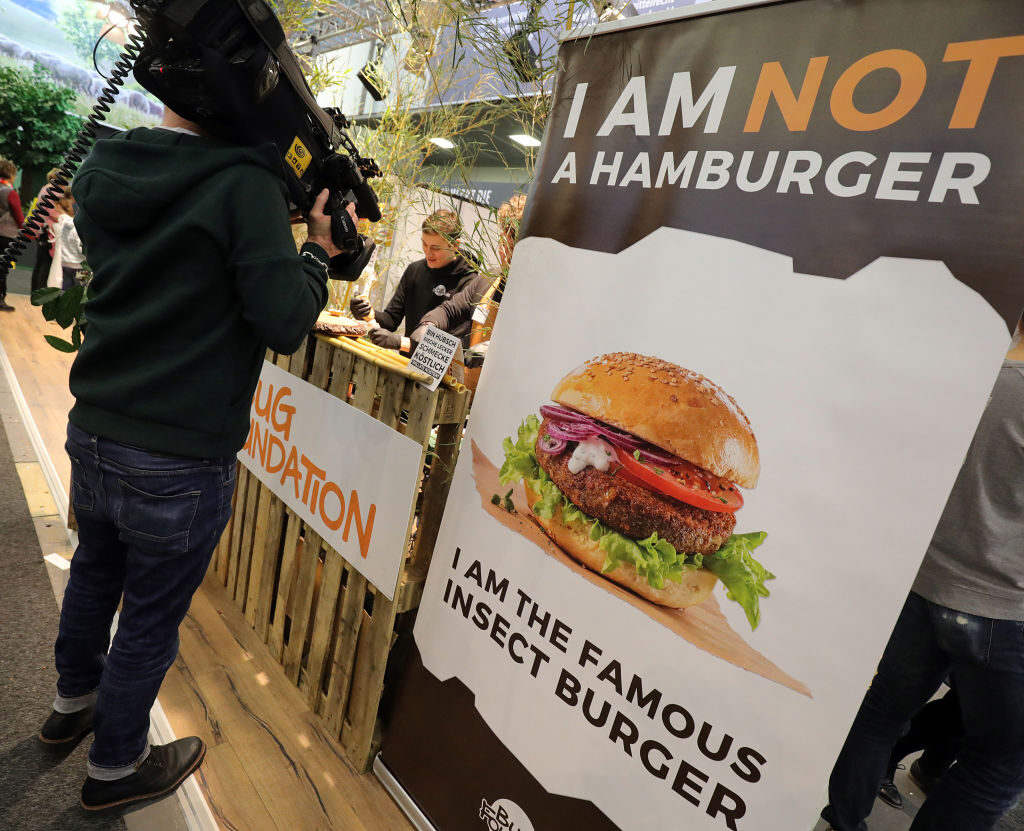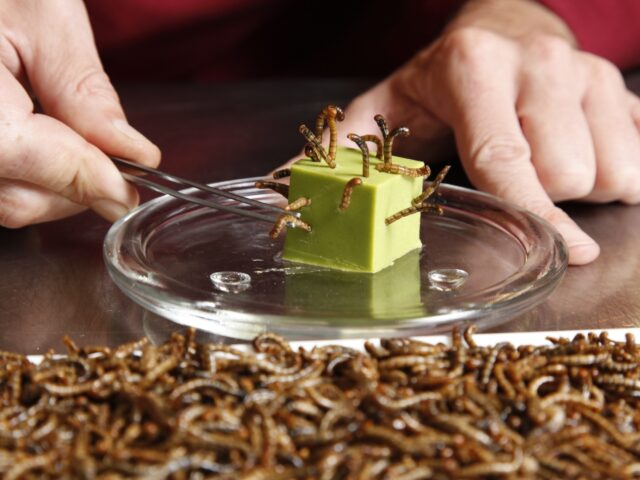Eating worms could help humanity survive in a future world starved of food and nutrition, South Korean scientists outlined in a study published Wednesday, although they conceded the small, slimy invertebrates suffer something of an “image problem.”
The researchers have cooked mealworms, or beetle larvae, along with sugar to create “meat” — and they claim it tastes authentic as an acceptable alternative nutrition source.
“Recently, eating insects has become of interest because of the increasing cost of animal protein, as well as the associated environmental issues,” In Hee Cho, Ph.D., the project’s principal investigator, said on announcing the findings.
The global population is expected to reach 9.7 billion people by 2050 and nearly 11 billion by 2100, according to the United Nations, and that has driven the study to find more ways to feed more people outside traditional farming methods.

File/A sign for the media advertises insect burgers, made from ground mealworms imported from the Netherlands, at the 83rd International Green Week in Berlin, Germany, 19 January 2018. (Wolfgang Kumm/picture alliance via Getty Images)
Feeding them all with animal meat — especially cows, pigs and sheep — will require larger amounts of food, water and land resources. In addition, cows are “a substantial contributor to climate change, releasing copious amounts of methane in their burps.”
So, the researchers argue the planet can be spared climate damage if more sustainable sources of protein are found.
“Insects are a nutritious and healthy food source with high amounts of fatty acids, vitamins, minerals, fiber and high-quality protein, which is like that of meat,” says Cho, whose team is at Wonkwang University (South Korea).
But mealworms suffer from an image problem, she conceded, acknowledging previous efforts to eat bugs have met with fierce consumer resistance.
Although some companies are trying to change people’s minds by selling cooked whole mealworms as crunchy, salty snacks, consumer acceptance is not widespread.
Cho says that to get more people to regularly eat mealworms, a sneakier approach might be in order — hiding insects in the form of seasonings inside easy-to-cook and other convenience products.
Through their research, Cho’s team studied mealworms throughout their entire lifecycle, looking at how the compounds present differed in each stage.
They found “volatile hydrocarbons” that evaporated and resulted in strong scents as a possible key to helping lift human consumption.
Raw larvae smelled of wet soil, shrimp and sweet corn but changed, depending on the method of cooking.
Steamed mealworms emitted aromas of sweet corn, while roasted or deep-fried larvae were more oily.
The U.N. Food and Agriculture Organization has previously referred to the insects as “a healthy and highly nutritious food source with a high content of fat, protein, vitamins, fibers and minerals.”

COMMENTS
Please let us know if you're having issues with commenting.